May 24, 2023
Federal Funding Opportunities
NEW: U.S. Department of Commerce; Economic Development Administration Regional Technology and Innovation Hub Program Phase 1 applications due August 15, 2023
The purpose of this program is to drive regional technology and innovation-centric growth by strengthening a region’s capacity to manufacture, commercialize, and deploy critical technologies. This program will invest directly in regions with the assets, resources, capacity, and potential to transform into globally competitive innovation centers in approximately ten years while catalyzing the creation of good jobs for American workers at all skill levels, both equitably and inclusively. Only those that are designated as “Technology Hubs” in Phase 1 will be permitted to apply to Phase 2. It is anticipated that the Notice of Funding Opportunity for Phase 2 will be released in fall 2023. This program targets key technology focus areas, which include:
- Artificial intelligence, machine learning, autonomy, and related advances;
- High performance computing, semiconductors, and advanced computer hardware and software;
- Quantum information science and technology;
- Robotics, automation, and advanced manufacturing;
- Natural and anthropogenic disaster prevention or mitigation;
- Advanced communications technology and immersive technology;
- Biotechnology, medical technology, genomics, and synthetic biology;
- Data storage, data management, distributed ledger technologies, and cybersecurity, including biometrics;
- Advanced energy and industrial efficiency technologies, such as batteries and advanced nuclear technologies, including but not limited to electric generation; and
- Advanced materials science, including composites 2D materials, other next-generation materials, and related manufacturing technologies.
U.S. Department of Education; Education Innovation and Research Competition Early-Phase, Mid-Phase, and Expansion applications due July 12, 2023
The purpose of this program is to create, develop, implement, replicate, or take to scale entrepreneurial, evidence-based, and field-initiated innovations to improve student achievement and attainment for students with high needs. This program also aims to rigorously evaluate such innovations. The central design element of the Education Innovation and Research (EIR) program is its multitier structure that links the amount of funding an applicant may receive to the quality of the evidence supporting the efficacy of the proposed project. Projects should build evidence to advance through EIR’s following grant tiers:
- Early-phase: The development, implementation, and feasibility testing of a program, which prior research suggests has promise, for the purpose of determining whether the program can successfully improve student achievement and attainment for students with high needs;
- Mid-phase: Expected to refine and expand the use of practices with prior evidence of effectiveness to improve outcomes for underserved and students with high needs; and
- Expansion: The implementation and rigorous evaluation of a program that has been found to produce sizable, significant impacts under a Mid-phase grant or other effort meeting similar criteria, for the purpose of determining whether such impacts can be successfully reproduced and sustained over time, and identifying the conditions in which the program is most effective.
U.S. Department of Education; Office of Postsecondary Education Transitioning Gang-Involved Youth to Higher Education Program applications due July 17, 2023
The purpose of this program is to support institutions of higher education (IHEs) and other organizations that work directly with gang-involved youth to help such youth pursue higher education opportunities that will lead to a certification or a postsecondary credential. Programs can include apprenticeships or other workforce preparation programs that promote job readiness, while simultaneously providing essential wraparound services that include culturally competent social and emotional support.
NEW: U.S. Department of Energy; Joint Office of Energy and Transportation Ride and Drive Electric Program concept papers due June 16, 2023
The purpose of this program is to address discrete barriers to a future where everyone can ride and drive electric vehicles (EVs). Specifically, this program aims to directly advance the goal of building a national network of EV chargers for all Americans by supporting EV charging reliability, resiliency, equity, and workforce development. Topics of focus include:
- Topic 1: Enhancing EV Charging Resiliency
- Topic 2A: Community-Driven Models for Electric Vehicle Charging Deployment
- Topic 2B: Workforce Development
- Topic 3A: Increasing Commercial Capacity for Testing and Certification of High-Power Electric Vehicle Chargers
- Topic 3B: Validating Public EV Charging Infrastructure Real-World Performance and Reliability
U.S. Department of Energy; Office of Energy Efficiency and Renewable Energy Vehicle Technologies Office Program concept papers due June 26, 2023
The purpose of this program is to support research projects and innovative solutions for on-road and off-road vehicles to improve the fuel economy and reduce carbon (GHG) emissions with the goals of carbon pollution free electricity by 2035 and net-zero GHG emissions by 2050. Research projects/innovative solutions should address priorities in the following areas:
- The cost-effective deployment of electrical vehicle charging for those without easy home charging;
- Improved mobility options for underserved communities;
- Community engagement to accelerate clean transportation options in underserved communities;
- Batteries and electrification;
- Materials technologies;
- Mobility system supporting public transportation; and
- Advanced vehicle charging solutions, including dimethyl ether engines for off-road applications and hydrogen combustion engines.
U.S. Department of Energy; Office of Clean Energy Demonstrations Energy Improvement in Rural or Remote Areas Fixed Award Grant Program pre-applications due July 17, 2023
The purpose of this program is to fund clean energy projects with three specific goals:
- Deliver measurable benefits to energy customers in rural or remote areas by funding replicable energy projects that lower energy costs, improve energy access and resilience, and/or reduce environmental harm;
- Support new rural or remote energy system models using climate-resilient technologies, business structures that promote economic resilience, new financing mechanisms, and/or new community engagement practices; and
- Build clean energy knowledge, capacity, and self-reliance in rural America.
U.S. Environmental Protection Agency; Office of Research and Development National Priorities: Evaluation of Antimicrobial Resistance in Wastewater and Sewage Sludge Treatment and its Impact on the Environment Program applications due August 16, 2023
The purpose of this program is to support research that addresses knowledge gaps in the occurrence, fate and transport, and persistence of antimicrobial resistant organisms and genes found in municipal wastewater effluent and biosolids. This program also requests research on combined sewer overflows, septic systems, and small wastewater systems. Research projects should provide a better understanding of the impact of antibiotic resistant bacteria (ARB) and antibiotic resistant genes (ARGs) on receiving waters, including information on the relative contribution of ARB and ARGs from wastewater as compared to other sources, such as animal agriculture, animal husbandry, hospital sources, and direct industrial sources. Research projects should also support the development of frameworks and methodologies for quantifying risk related to antimicrobial resistance in treated wastewater discharge, water reuse, biosolids and biosolids-type products, land application, and beneficial use.
U.S. Department of Health and Human Services; Centers for Disease Control Centers for Outbreak Analytics and Disease Modeling letters of intent due June 14, 2023
The purpose of this program is to develop a network of innovators to design, prototype, test, refine, evaluate, and implement new and enhanced capabilities to improve disease modeling and analytics that enhance decision-making during outbreaks of infectious diseases. Partnership and collaboration between academia, public health organizations, and the private sector is at the core of this program. This program also aims to support the U.S. public health system in responding more effectively to infectious disease threats by enabling a pipeline of research and development for novel data sources, modeling methods, and analytical tools that test promising innovations in real-world settings and then support the scale-up of successful innovations into routine practice.
U.S. Department of Health and Human Services; Health Resources and Services Administration Nurse Education, Practice, Quality, and Retention Simulation Education Training Program applications due July 3, 2023
The purpose of this program is to enhance nurse education and strengthen the nursing workforce by increasing training opportunities for nursing students through simulation-based technology, including equipment to increase their readiness to practice upon graduation. This program expands the capacity of nurses to advance the health of patients, families, and communities in rural or medically underserved areas experiencing diseases and conditions, such as stroke, heart disease, behavioral health, maternal mortality, HIV/AIDS, and obesity.
U.S. Department of Health and Human Services; Health Resources and Services Administration Healthy Start Initiative – Enhanced applications due July 17, 2023
The purpose of this program is to improve health outcomes before, during, and after pregnancy, and to reduce the well documented racial/ethnic differences in rates of infant deaths and adverse perinatal outcomes. The program intends to fund projects in diverse communities and populations (e.g., rural, urban, non-Hispanic Black, American Indian/Alaskan Native) experiencing the greatest disparities in maternal and infant health outcomes. The program has two focus areas:
- Direct services – Screening and referrals, case management, care coordination, health and parenting education, and linkage to clinical care to enrolled Healthy Start Initiative – Enhanced (HSE) participants; and
- Convene Community Consortia – Comprised of diverse, multi-sector partners that advise and inform HSE-related activities and develop and implement plans to improve perinatal outcomes within the selected project area(s).
U.S. Department of Health and Human Services; Office of Minority Health Healthy Families Community-Based Perinatal Health Initiative applications due July 18, 2023
The purpose of this program is to support effective approaches for improving health outcomes with the goal of promoting dissemination and sustainability of these approaches. Projects should develop innovative models for integrating community-based maternal support services (COMSS) into perinatal systems of care. COMSS are social and supportive services that address social determinants of health, such as health literacy, pregnancy, childbirth, and parenting education; cultural and linguistic diversity; exposure to trauma; housing; food; and transportation. Services are to be provided during pregnancy, labor, delivery, and post-delivery by trained individuals, such as doulas and community health workers.
U.S. Department of Health and Human Services; National Institutes of Health; National Center for Advancing Translational Sciences Awards Supporting Cutting-Edge Technologies for Translational Science Program applications due July 19, 2023
The purpose of this program is to foster investigator-initiated development of highly innovative technologies to address barriers, limitations, or bottlenecks in translational science, particularly for therapeutic development. This program supports early-stage proof of concept, high-risk and potentially high-reward studies for feasibility, and exploratory technology development that transforms or significantly improves the efficiency of therapeutic development to achieve the ultimate goal of, “more treatments to all people more quickly.” The research proposed should be for the development of technology that can break new ground or extend present technology toward new directions or novel applications. This initiative will also support the development and/or prototyping of new technologies that lead to improved efficiency in the therapeutic development pipeline.
U.S. Department of Health and Human Services; National Institutes of Health; National Library of Medicine Grants for Scholarly Works in Biomedicine and Health applications due February 26, 2024
The purpose of this program is to support the preparation of book-length manuscripts and other works of academic and/or public health importance to U.S. health professionals, public health officials, biomedical researchers, and historians of the health sciences. Grants can be used to support several types of projects of academic and/or public health policy value, including but not limited to:
- Works focusing on the history or philosophy of medicine, public health, and life sciences, as well as the development of medical research and health services, bioethics, and studies on the interrelationship of medicine and society;
- Works focusing on the history or philosophy of biomedical informatics, computational biology, health information sciences, health communications, or health sciences librarianship; and
- Analytical and comprehensive critical reviews that identify the present status of research and practice in various health-related fields, address advances that have been made and problems requiring examination, and emerging trends.
National Archives and Records Administration; National Historical Publications and Records Commission Archival Projects applications due November 2, 2023
The purpose of this program is to fund archival projects that significantly improve online public discovery and use of historical records collections. Projects should engage the public, expand civic education, and promote understanding of the nation’s history, democracy, and culture from the founding era to the present day. The Commission encourages projects focused on collections of America’s early legal records, such as the records of colonial, territorial, county, early statehood, and tribal proceedings that document the evolution of the nation’s legal history.
National Endowment for the Arts Grants for Arts Projects applications due to grants.gov July 6, 2023 and to the NEA portal July 18, 2023
The purpose of this program is to support opportunities for public engagement within the arts and arts education to integrate the arts with strategies promoting the health and well-being of people and communities, and for the improvement of overall capacity and capabilities within the arts sector. Areas of focus include Arts Education; Dance; Design; Folk and Traditional Arts; Literary Arts; Media Arts; Music; Musical Theater; Opera; Presenting and Multidisciplinary Arts; Theater; and Visual Arts.
National Endowment for the Humanities Public Humanities Projects applications due August 9, 2023
The purpose of this program is to support projects that bring the ideas and insights of the humanities to life for general audiences through in-person, hybrid, or virtual programming. Projects must engage humanities scholars to analyze significant themes in disciplines, such as history, literature, ethics, and art history. Projects should aim to be grounded in sound humanities scholarship. Scholars should also plan to analyze underlying themes and ideas that deepen public understanding of the humanities, involve humanities scholars from outside the applicant organization in all phases of the project, attract a broad public audience or target a particular underserved group, offer engaging content approached through an appropriate variety of perspectives, and encourage dialogue and the exchange of ideas.
National Endowment for the Humanities Humanities Connections Planning and Implementation applications due September 7, 2023
The purpose of this program is to expand the role of the humanities in undergraduate education at two- and four-year institutions by encouraging partnerships between humanities faculty and their counterparts in other areas of study. Awards support the planning or implementation of curricular projects connecting the humanities to the physical and natural sciences and pre-service or professional programs, including law and business, computer science, data science, and other technology-driven fields or other non-humanities departments or schools. Projects must incorporate the approaches and learning activities of both the humanities and the non-humanities disciplines involved.
National Science Foundation issues Dear Colleague Letter for Clean Energy Technology Proposals
The National Science Foundation (NSF) invites interdisciplinary groups of Principal Investigators to develop potentially transformative, convergent, fundamental research proposals in the area of clean energy technologies. Two kinds of proposals will be considered: Research Advanced by Interdisciplinary Science and Engineering (RAISE) and Early-concept Grants for Exploratory Research (EAGER). NSF seeks to support new research that advances Clean Energy Technologies and increases the use of clean energy sources to benefit all sectors of the economy, to ensure social justice, and to contribute to the public good. Advances in custom-designing and producing materials for energy-efficient technologies, electrification of the U.S. economy including the transportation sector and the chemical industry, as well as developing new approaches to harnessing energy from renewable sources in green and sustainable ways, are critical for developing practical approaches to achieving a carbon-neutral and equitable economy. Proposals that address barriers and opportunities for technology adoption, economic and societal impacts of technology development, social justice considerations, or social and environmental sustainability of clean energy technologies are strongly encouraged.
National Science Foundation issues Dear Colleague Letter focused on Advancing Microelectronics Education
This Dear Colleague Letter (DCL) encourages submission of education proposals in all settings, both formal and informal, that will excite, motivate, and prepare students for participation in the microelectronics industry of the future in response to the CHIPS and Science Act of 2022. NSF is accepting proposals to conduct education-related research and development to prepare a diverse microelectronics workforce beginning with the early preparation of K-12 students in and outside of school settings and extending through undergraduate, graduate and other levels of adult learning. This DCL encourages proposals that will inspire, study and support learners’ interest and motivation to pursue education pathways and careers in microelectronics. Successful projects should engage students and learners in activities that will build knowledge and skills in STEM needed for the microelectronics workforce of the future.
NEW: National Science Foundation Convergence Accelerator Phases 1 letters of intent due July 11, 2023
The purpose of this program is to address national-scale societal challenges through use-inspired convergence research. Using a convergence approach and innovation processes, such as human-centered design, user discovery, and team science and integration of multidisciplinary research, the Convergence Accelerator program seeks to transition basic research and discovery into practice to solve high-impact societal challenges aligned with the following research tracks:
- Equitable Water Solutions: Build upon foundational knowledge and advancements in environmental sciences, geosciences, engineering, computing, social and behavioral sciences, as well as other areas to develop viable solutions for water quality, quantity, and equity issues;
- Real-World Chemical Sensing Applications: Develop novel energy efficient and miniaturized or portable biological and chemical sensors for tangible applications; and
- Bio-Inspired Design Innovations: Bring together scientists and practitioners to develop concepts, approaches, and technologies that build and control in the same way nature does, capitalizing on millions of years of evolution, to find novel solutions to major societal and economic challenges.
NEW: National Science Foundation Expanding TRIPODS through Partnerships applications due August 16, 2023
The Expanding Transdisciplinary Research in Principles of Data Science through Partnerships (XTRIPODS) program, which leverages the existing TRIPODS program, seeks to expand the diversity of participation in data science research that advances the field, conduct responsible data science research through more inclusive participatory design, and promote positive societal outcomes of data science innovation. Activities are intended to be a driving force for strengthening and diversifying research and education pathways and provide historically marginalized communities with new opportunities in science, technology, engineering, and mathematics careers. Funding will support partnerships between the current TRIPODS Phase II Institutes and IHEs that do not traditionally receive significant amounts of funding. Only institutions that are not classified as Carnegie Research 1 (R1) universities are eligible, and non-R1 Minority-Serving Institutions, women’s colleges, and institutions that primarily serve persons with disabilities, as well as Predominantly Undergraduate Institutions, are especially encouraged to apply.
National Science Foundation Decision, Risk, and Management Sciences Grants applications due August 18, 2023
The purpose of this program is to support scientific research directed at increasing the understanding and effectiveness of decision-making by individuals, groups, organizations, and society. This grant supports research with solid foundations in theories and methods of the social and behavioral sciences. Research projects should advance knowledge, address fundamental scientific and societal issues, and have strong and broad impacts. This program funds disciplinary and interdisciplinary research, doctoral dissertation research improvement grants, and conferences in the following areas: judgment and decision-making; decision analysis and decision aids; risk analysis, perception, and communication; societal and public-policy decision-making; and management science and organizational design.
National Science Foundation Economics Program applications due August 18, 2023
The purpose of this program is to support research designed to improve the understanding of the processes and institutions of the U.S. economy and of the world system of which it is a part. This program also strengthens both empirical and theoretical economic analysis and the methods for rigorous research on economic behavior. The program supports research in almost every area of economics, including econometrics, economic history, environmental economics, finance, industrial organization, international economics, labor economics, macroeconomics, mathematical economics, and public finance.
National Science Foundation Community Infrastructure for Research in Computer and Information Science and Engineering Program applications due September 8, 2023
The purpose of this program is to fund the creation and enhancement of world-class research infrastructure that will support diverse communities of computer and information science and engineering (CISE) researchers. This support involves developing the accompanying user services and engagement needed to attract, nurture, and grow a robust research community that is actively involved in determining directions for the infrastructure, as well as management of the infrastructure. This should lead to research infrastructure that can be sustained through community involvement and community leadership, and that will enable advances not possible with existing research infrastructure. This program supports four classes of awards, including:
- Planning Community Infrastructure – Supports planning efforts to engage research communities to develop new CISE community research infrastructures.
- Exploratory Development – Supports activities that involve the validation of one or more unproven infrastructure design(s) and/or technologies, which could enable a transformative community research infrastructure in the future.
- Medium Community Infrastructure – Supports the creation of a new CISE community research infrastructure or the enhancement of an existing CISE community research infrastructure with integrated tools, resources, user services, and research community outreach to enable innovative CISE research opportunities to advance the frontiers of core CISE research areas.
- Grand Community Infrastructure – Supports projects involving significant efforts to develop a new CISE community research infrastructure or to enhance and sustain an existing CISE community research infrastructure to enable world-class CISE research opportunities for broad-based communities of CISE researchers that extend well beyond the awarded organization(s).
National Science Foundation Workplace Equity for Persons with Disabilities in STEM and STEM Education applications due September 19, 2023
This program supports fundamental, applied, and translational research that advances knowledge and practice about diverse, equitable, inclusive, and accessible STEM and STEM education workplaces and postsecondary training environments for persons with disabilities. Proposals should focus on one or more of the following three research themes:
- Studying barriers and solutions to diversity, equity, inclusion, and accessibility in STEM and STEM education workplaces and training settings for persons with disabilities;
- Applying intersectional social identity perspectives to investigate characteristics and conditions of STEM and STEM education workplaces and training environments that limit and/or improve diversity, equity, inclusion, and accessibility for persons with disabilities; and
- Conducting use-inspired and solution-oriented translational research about diverse, equitable, inclusive, and accessible STEM and STEM Education workplaces and training settings for persons with disabilities
National Science Foundation Boosting Research Ideas for Transformative and Equitable Advances in Engineering Program applications due September 28, 2023
This program aims to help experienced researchers gain knowledge from a different discipline and use it to forge new directions in their research field, or explore divergent, bold, and ambitious research ideas where the expected scientific outcomes are highly uncertain and the potential to transform a field is significant. The solicitation includes three funding tracks:
- BRITEPivot Track – Intended to enable researchers to quickly adapt to the fast-moving pace of research by either leveraging their experience when pursuing a pivot into a field of research where they have no proven track record, or by incorporating research tools and methodologies from other fields of research to advance knowledge in their areas of expertise.
- BRITERelaunch Track – Intended to enable researchers who have had a hiatus in research activity to relaunch back into active research by reestablishing a foundation for sustained productivity and broader impacts in the context of a research idea with significant potential for advancing knowledge.
- BRITEFellow Track – Intended to support researchers who have demonstrated significant impact through and beyond scientific output to request extended time and freedom to use their intellectual creativity to explore divergent, bold, and ambitious research ideas where the expected scientific outcomes are highly uncertain and therefore, high risk.
DWPA Staff
on
June 30, 2023






